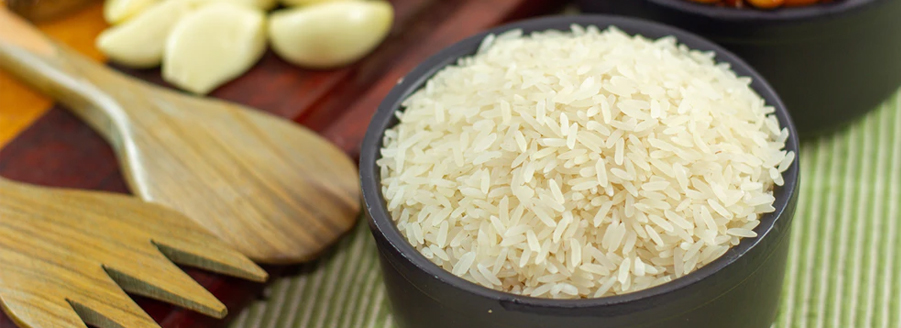05 Nov 2020
Vitawatch: agri-food intelligence round-up for November

Food and health, consumer behaviours, packaging, formulation, sustainable agriculture… What are the latest scientific advances for agri-food from around the world?
Identifying the brain cells controlling sugar craving, genetically modified rice as a treatment for hypertension, peanut waste products as a health ingredient in chocolate, Generation Z's doubts about lab-grown meat...
Read our Vitawatch monthly agri-food intelligence briefing for June.
Diet and health
Scientists identify brain cells behind sugar craving
Understanding the biological mechanisms behind sugar consumption is essential for the prevention of metabolic diseases such as obesity or type 2 diabetes. The hepatic hormone FGF21 (Fibroblast Growth Factor 21) is well known to play a central role in energy balance, weight gain and insulin sensitivity.
New research, lead by Matthew Potthoff, PhD and associate professor in neurosciences and pharmacology at the University of Iowa (USA) and Matthew Gillum, PhD at the University of Copenhagen (Denmark), published this summer an article in Cell Metabolism pinpointing the brain cells that react to signals from FGF21 and control so-called sugar craving.
Their research reveals that FGF21 targets glutamatergic neurons in the brain to lower sugar intake. The authors also showed that FGF21 acts on specific neurons found in the ventromedial hypothalamus in order to amplify the sensitivity of these neurons to glucose - which can also lead to a reduction in sugar consumption.
Several medications based on a modified form of FGF21 are already being tested to develop treatments for obesity and type 2 diabetes. These new advances could help the development of medications that precisely target the behaviours influenced by FGF21.
Source: https://www.eurekalert.org/pub_releases/2020-07/uoih-spb071020.php
Lowering blood pressure using... rice?
Blood pressure, or hypertension, is a major risk factor for cardiovascular problems and in particular heart attacks. A research team from the American Chemical Society (ACS) has developed a genetically modified rice that has been shown to lower blood pressure when tested on hypertensive rats.
Medications frequently used in treating hypertension are angiotensin converting enzyme (ACE) inhibitors. However, they have a number of side effects. While natural ACE inhibitors are found in a number of foods (fish, vegetable oils) and have fewer side effects, they are difficult and costly to extract and formulate in pharmaceutical treatments.
The research team at the ACS chose rice, as a worldwide food stable, to introduce the gene composed of 9 ACE-inhibitory peptides and a blood-vessel-relaxing peptide linked together. Next, they extracted the genetically modified rice proteins (including the peptides) and fed them to rats. Two hours after receiving the dose, the hypertensive rats' blood pressure had gone down, unlike the rats that received a control dose of proteins extracted from wild rice.
After being dosed for five weeks with flour from the genetically modified rice, the rats had lower blood pressure - an effect that continued for one week after the end of the treatment. No side effects were noted in terms of growth, development or blood chemistry. While clinical testing on humans remains to be carried out, an estimated dosage for an adult of 70kg would be half a spoonful of the rice per day for the purposes of preventing or treating hypertension.
Source: https://www.eurekalert.org/pub_releases/2020-06/acs-trl061920.php
Food formulation / processes
Healthier chocolate thanks to a peanut byproduct
The thin skin of a peanut contains 15% phenolic compounds. This antioxidant goldmine has potential health benefits such as anti-inflammatory properties, as well slowing food spoilage. That said, most processing of peanuts (for peanut butter, for example) removes the skin, and considers it a waste product.
Dr Lisa Dean and her research team at the US Department of Agriculture (USDA) has been studying the extraction of these phenols and methods for incorporating them into foods. The major obstacle in food formulations is their marked bitter flavour.
By turning the peanut skin into a powder, Dr Dean's team was able to extract the phenolic compounds (70% ethanol) and mix them with maltodextrin to make them easier to incorporate into milk chocolate. To ensure that the phenol-rich powder was not noticible, the researchers tested the product using a trained sensory panel. The panel tasted various concentrations from 0.1% to 8.1%. The conclusion was that any concentrations over 0.9% were detectable, with a best compromise in terms of flavour and health benefit being 0.8%.
Grapeseed extract beneficial to both hens and their chicks
Adding grapeseed extract to the feed of broiler chicken breeding hens can have a beneficial effect on their gut microbiota, according to a team of researchers from INRAE (France) collaborating with the company INDENA. This supplementation reduced the production of fat and improved the quality of their eggs, as well as positively impacting the viability of the broiler chicken chicks that hatched from these eggs. Grapeseeds (a waste product of wine or grape juice production) are recognised as a source of flavonoids, molecules with proven antoxidant properties.
Their study included 40 weeks of observation of 324 breeding hens who were given 1% grapeseed extracts in their feed. The results were clear: the egg quality improved (fewer double yolks, a stronger shell), less free radical production in the yolk (potentially leading to oxidative stress), and a higher growth rate and viability for the chicks.
In parallel, a second experiment observed three groups of hens fed with varying levels of the grapeseed extract: a medium level, a high level, and a control group with no supplementation. This study showed that the hens fed with a high level of extract had a healthier gut microbiota and better overall gut health and reproduction.
The study's authors concluded that supplementing breeding hens with grapeseed extract is a fast-acting solution for allowing farmers to improve animal health and welfare, for both the breeding hen and their offspring.
Source: https://www.inrae.fr/actualites/plus-poules-ont-pepins-moins-ont-leurs-poussins (in French)
Consumer behaviour
Generation Z: the jury is out on lab-grown meat
A research team from Sydney University and Curtin University in Australia have been studying the perception of lab-grown meat among Generation Z consumers (born between 1995 and 2015).
Among the 227 participants in the study, 72% indicated that they were not ready to accept cultured meat (grown from cells in a laboratory), as apposed to slaughtered animals. Despite the low enthusiasm for these products, 41% said that it could be a viable source of nutrition faced with the need to transition to food sources that were more sustainable and respectful of animal welfare. In addition, 59% of the participants said they were worried about the environmental impact of animal farming, although they remained hazy on the exact impact of this type of food production on the environment.
Dr Diana Bogueva of the Sydney University School of Chemical and Biomolecular Engineering concludes that Generation Z are unconvinced whether cultured meat is more sustainable, citing several respondants beliefs that it is "resource consuming' and 'not environmentally friendly'.
Source: https://www.foodnavigator.com/Article/2020/09/09/Gen-Z-not-ready-to-eat-lab-grown-meat-study
Food safety / packaging
A smart label that speaks to the vision impaired
Sistemi e Servizi di Precizione, an Italian start-up specialised in Agtech and Foodtech, has worked with the Blind and Visually Impaired Union of Calabra and the Council for Agricultural Research and Agricultural Economics Analysis (CREA) to develop a smart label that helps people with vision problems to access information on product packaging.
Called a "narrative label", their solution is based on a software platform using photos, videos and voice recordings, that is accessible via flashcodes printed on the products. By scanning the flashcode with a smartphone, the narrative label provides vision-impaired shoppers with information found on the product packaging: product name, description, nutritional information, use-by date, manufacturer etc.
The start-up founder, Fabio Mario Scalise, said in an interview with Food Navigator that this tool should provide the vision impaired with the means to be more independant in their food shopping. The only equipment they need to use the system is a smartphone. For able-bodied people, shopping is "taken for granted", and is indeed considered a "burden" or chore. For the vision impaired, it is a major challenge and a source of dependence on outside help.
The start-up is currently promoting the initiative to food companies based on voluntary participation.
Sustainable agriculture
Aquaporins: a key for improved crops in extreme environments
Aquaporins (AQP) are a type of membrane protein, identified by Peter Agree in 1992, that form the permeable "pores" that allow water molecules to travel in and out of biological cells of most living organisms. As a sort of "sieve", they stop ions from entering cells, while allowing the passage of water.
A research team of the Australian Research Council (ARC) Centre of Excellence for Translational Photosynthesis (CoETP), at the Australian National University (ANU), have published an article in BMC Plant Biology on the importance of understanding aquaporins for improving crop performance in extreme environments.
During their study, the researchers identified a variety of aquaporins present in tobacco (Nicotinia tabacum), a fast-growing model plant species linked to a number of other crops such as tomato or potato. 76 types of aquaporin were described in tobacco based on their gene structures, protein composition, location in the plant cell and in the different organs of the plant and their evolutionary origin. As key players in energy conversion through photosynthesis and also in controlling how a plant uses water, this research has potential applications for enhancing plant performance and crop resilience to environmental changes.
Dr. Michael Groszmann, of the Research School of Biology and CoETP explains that "this research is extremely exciting because the diversity of aquaporins, in terms of their function and the substrates they transport, mean they have many potential applications for crop improvement ranging from improved salt tolerance, more efficient fertiliser use, improved drought tolerance, and even more effective response to disease infection. They are currently being used in water filtration systems and our results could help to expand these applications."
Source : https://www.eurekalert.org/pub_releases/2020-06/acoe-pcg061120.php
Reduced fertiliser use with the help of plant proteins
Research lead by Guilhem Reyt of the School of Biosciences and Future Food Beacon at the University of Nottingham, and published in Current Biology, has showed that Uclacyanins play a vital role in the formation of Casparian strips. In botany, Casparian strips are a waterbroof barrier present between plant cells that preventing water and nutrients from leaking between them.
This study reveals that the molecular machinery required for Casparian strip lignin deposition is highly ordered and can have a huge impact on plant nutrition. Guilhem Reyt explains that his team's research has highlighted how this molecular mechanism can improve the efficiency of plants in taking up the minerals and water that they need, and thus improve their stress resistance. This could lead to agricultural crops that are better adapted to climatic extremes such as floods or droughts.
This research could also help farmers to reduce their consumption of agricultural fertilisers, with benefits in terms of cost, environmental impact and improved yield.




 Home
Home
















Share your opinion
SadSantaghr
27 November 2022 at 01h56
BadSantaimp
08 November 2022 at 02h17
BadSantamnq
05 November 2022 at 08h01
BadSantabqa
22 October 2022 at 10h02
BadSantatom
20 October 2022 at 11h23
Saraliern
23 June 2022 at 03h34
poohar
14 June 2022 at 11h46
viperhag
27 May 2022 at 07h11
LimaoSlock
06 April 2022 at 01h44
LimaoSlock
08 March 2022 at 05h02